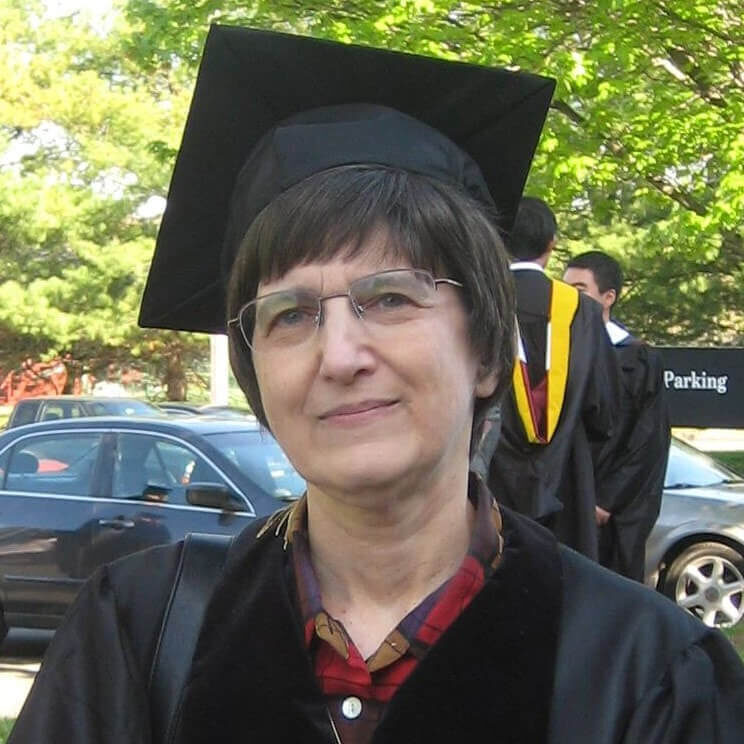If you had told me when I was growing up that one day, I’d have a PhD, I would have told you that was not my goal at all. I had other plans: I wanted to be a deejay.
Today, that’s not unusual; there are many female deejays on the radio and an equal number of female announcers on TV. But when I was growing up in the 1950s, society still had not changed, and gender roles in the media were very traditional. That meant the announcers and deejays were men, usually white, and preferably with deep voices, and women were either receptionists or secretaries or switchboard operators (yes, switchboards were still a thing), or they hosted a so-called “women’s show,” where they discussed food, family, and fashion. I never wanted to do a women’s show. I wanted to play the hits and cheer people up, which is what my favorite deejays did for me.
I never realized the lack of female deejays was because we weren’t welcome in that role; I thought women just hadn’t applied, and I decided to rectify that by joining my college radio station. Imagine my surprise (and disappointment) when the program director told me that girls couldn’t be on the air. (Evidently, girls didn’t sound good. Or so he said, even though no girls had ever been allowed on the air.) To make a long story short, it took me four years before I was given the opportunity I had long sought: in my senior year, I finally became the first female deejay in the station’s history.
Somehow the republic did not fall. In fact, I got a lot of fan mail and seemed to be well-accepted. Eventually, I was able to get into commercial radio, and spent nearly four decades there—first as a deejay and music director, and later as a programming and management consultant. Along the way, I became known for discovering a Canadian rock band named Rush, and I helped to launch their career in the United States. We became friends—they dedicated two albums to me, and I’m in a documentary about them. We are still in touch to this day. I had fun consulting stations all over North America, I did some free-lance writing for music industry magazines, and I still got on the air sometimes as a guest deejay.
And then, everything in the broadcasting industry began to change. In the mid-1990s, media consolidation was accelerating. All of the small and medium-sized stations I consulted were being gobbled up by giant conglomerates. After a long and gratifying career as a broadcaster, I was among the many who lost their jobs, not because I wasn’t good at what I did, but because those jobs had vanished. It was time to reinvent myself, whether I wanted to or not.
I had been doing some part-time teaching since the mid-1980s, usually the occasional broadcasting or journalism-related course at a local college. My courses were well-received, but I had never thought of myself as a full-time educator. For one thing, adjunct instructors didn’t make much money. For another, if I wanted to move up and be considered for full-time positions, I was told I would need an advanced degree. I found this frustrating, to be honest. I had been teaching at Emerson College for 19 years and nearly all of my classes had waiting lists to enroll in them. I had even won an award as the Instructor of the Year; and yet, without a PhD, I couldn’t even be considered for any professor openings. I was also told by editors at several journals that despite being published in a number of magazines, I needed a PhD to be considered a scholar.
So there I was, confronting the reality that, fair or not, I wouldn’t be taken seriously in academia without a PhD, and I also wouldn’t get hired full-time. And so it was that I embarked on a search for a doctoral program that would admit me. Sad to say, my being in my 50s was seen as a liability. One admissions officer even told me I was “too old”. But when four of the places to which I applied turned me down, I got the message. Older students were something new, evidently; many of us had been out of school for years – I had gotten two master’s degrees, but I hadn’t been in school for three decades – and people weren’t sure we had what it took to succeed.
By this time, I was determined to prove my detractors wrong. And fortunately for me, I was able to find a university that gave me a chance: the University of Massachusetts at Amherst, nearly 90 miles away. I have to admit it was disconcerting to be back in school. I was among the oldest students in my classes, plus I had last studied at a time before digitized databases—once, a professor mentioned JSTOR, and I had no clue what that even was. In addition, I was accustomed to being the instructor, and now I had to make the transition to being the student. I also had to make a 90 mile drive from Boston, where I lived and worked, out to Amherst several nights a week. And to make some extra money, which I desperately needed, I taught at least one course a semester for UMass, in addition to the courses I was teaching at Emerson.
I’d be lying if I said it was easy. I’d be lying if I said I loved every course I took or every book I was asked to read. In some courses, I had a tough time adjusting and I struggled to meet expectations. In others, things came easy for me, and I was happy to be making progress. Several of my professors went out of their way to encourage and mentor me; I will always be grateful for their kind words whenever I began to doubt whether I could get it all done. It took me nine years, but I completed my coursework, wrote a 365-page dissertation about how early radio changed American society, and in May 2011, I finally got my PhD. I wish my parents (of blessed memory) had been alive to see it, but my husband and some of my students were there for me, and I appreciated that more than words can express.
I will leave it up to you, dear readers, to decide if I’m smarter now. All I know is that I was able to get hired as a professor by Lesley University in Cambridge MA, and as I write this, I’m still there. At age 75, I have no wish to retire; yes, I miss being in the media, but teaching about it is both enjoyable and gratifying. And to all the folks who said I’d never be able to do it, all I can say is, you were wrong about me. And in a way, their skepticism served as a motivator. As I said, I became determined to prove them wrong, and I hope I did.
My advice to anyone seeking a PhD later in life?
Go for it.
Whether it’s for a job, or just to acquire some new knowledge, or both, it’s never a bad idea to challenge yourself. I learned some very valuable lessons by starting a PhD program at age 55. I hope I can serve as a role model for others, people who never planned on a second act in their lives, or people who had reached a certain level and never thought they could go any farther. The truth is that you are writing the story of your life, and if getting a PhD is the next chapter, you should try. And I hope your story will have a positive ending, the way mine did.




